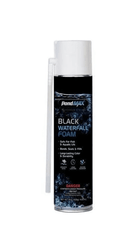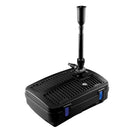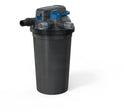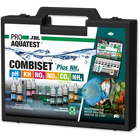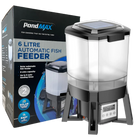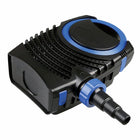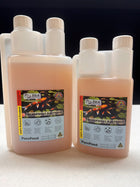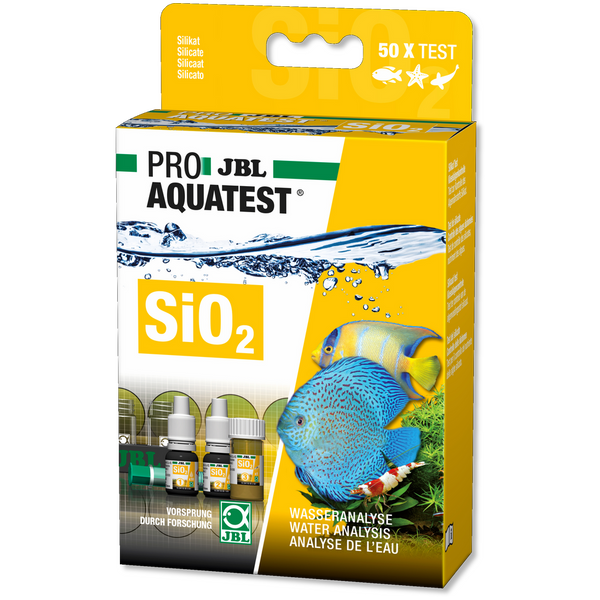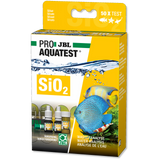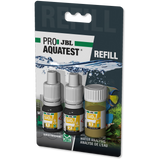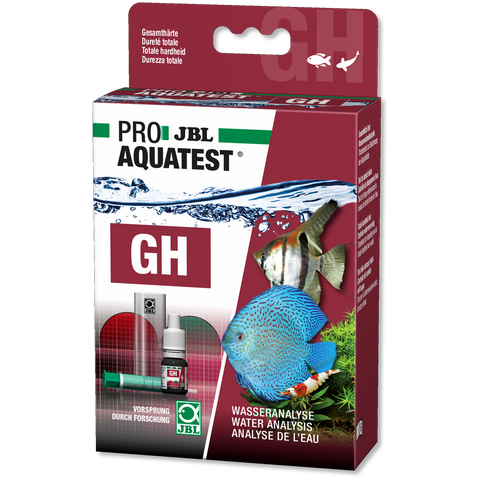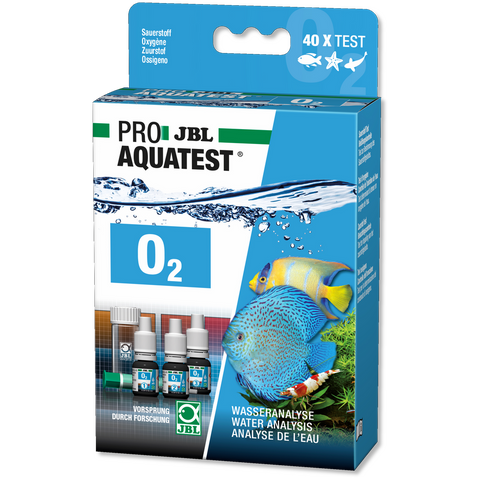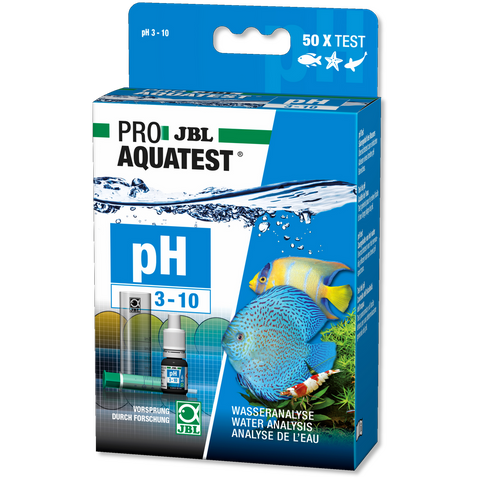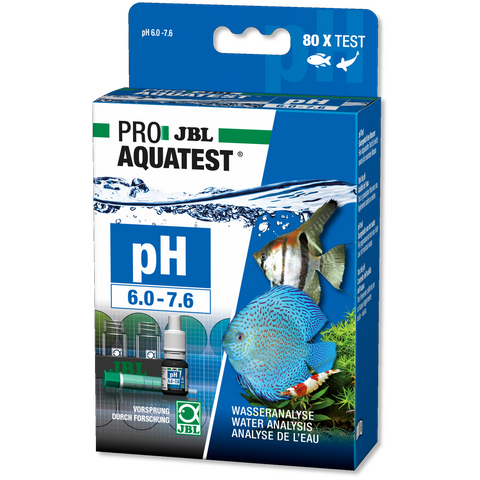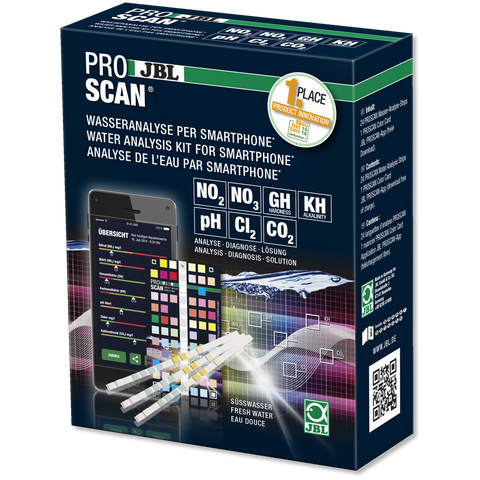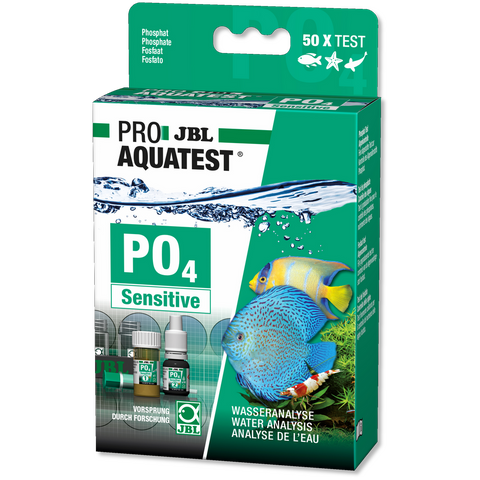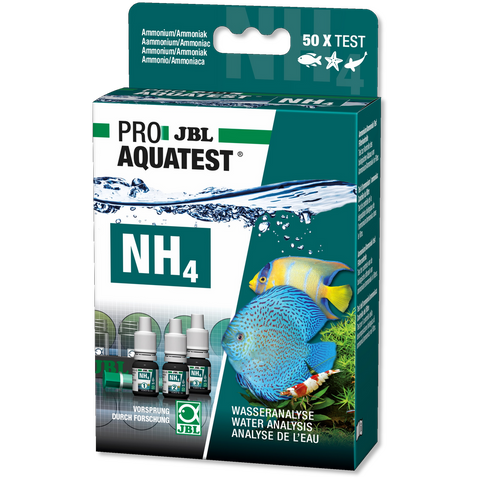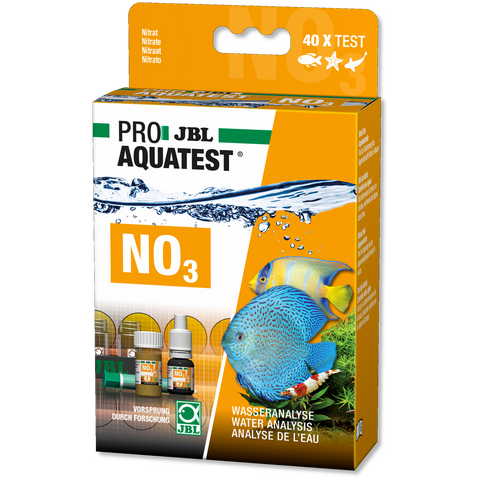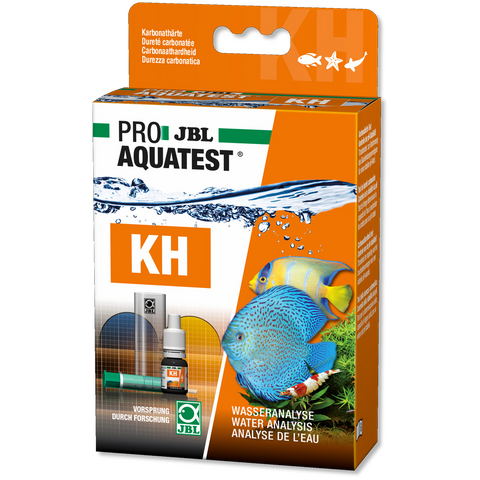JBL Silicate (SiO20) Test Kit
Complete test kit contains: 1 silicate test for approx. 50 measurements, incl. 2 reagents, 2 glass vials with screw caps, dosing spoon, syringe, comparator block and colour scale.
Refill Kit contains: one set of reagent Silicate
Healthy aquariums with conditions close to nature
The right water values are dependent on the fish stock and the plants in the aquarium. Even if the water looks clear it can be contaminated. With bad values diseases or algae can appear in the aquarium. To maintain a healthy aquarium with conditions close to nature it is important to check and adapt the water values regularly.
For each water analysis JBL provides water tests in the form of rapid tests or colour change tests. These determine a certain value or several values in one go. With these water tests you can recognise algae problems and negative nitrate, nitrite, potassium, magnesium values etc.
Why test?
Silicon is one of the most common elements in the world. As a result of the weathering of silicate rocks, silicon is washed into surface and ground water in the form of silicate. Depending on the composition of the rocks in a particular area, the mains water will contain varying amounts of dissolved silicate. The significance of silicon for aquariums and garden ponds is as a nutrient for diatoms, some aquatic plants, siliceous sponges and many other invertebrates.
JBL Online Laboratory
Regular monitoring for a healthy aquarium with conditions close to nature. Enter your water values into the JBL Online Laboratory and get an in-depth analysis of your values within seconds.
Recommended silicate values:
Freshwater aquarium (community aquarium): 0-2.0 mg/l
Lake Malawi/Lake Tanganyika aquarium: the silicate content is not relevant here because grazing fish species like eating diatoms
Plant aquarium with few fish (aquascaping): 0-2.0 mg/l
Marine water Aquarium: 0-1.0 mg/l
Pond: 0-2.0 mg/l
JBL Silicate (SiO20) Test Kit
Complete test kit contains: 1 silicate test for approx. 50 measurements, incl. 2 reagents, 2 glass vials with screw caps, dosing spoon, syringe, comparator block and colour scale.
Refill Kit contains: one set of reagent Silicate
Healthy aquariums with conditions close to nature
The right water values are dependent on the fish stock and the plants in the aquarium. Even if the water looks clear it can be contaminated. With bad values diseases or algae can appear in the aquarium. To maintain a healthy aquarium with conditions close to nature it is important to check and adapt the water values regularly.
For each water analysis JBL provides water tests in the form of rapid tests or colour change tests. These determine a certain value or several values in one go. With these water tests you can recognise algae problems and negative nitrate, nitrite, potassium, magnesium values etc.
Why test?
Silicon is one of the most common elements in the world. As a result of the weathering of silicate rocks, silicon is washed into surface and ground water in the form of silicate. Depending on the composition of the rocks in a particular area, the mains water will contain varying amounts of dissolved silicate. The significance of silicon for aquariums and garden ponds is as a nutrient for diatoms, some aquatic plants, siliceous sponges and many other invertebrates.
JBL Online Laboratory
Regular monitoring for a healthy aquarium with conditions close to nature. Enter your water values into the JBL Online Laboratory and get an in-depth analysis of your values within seconds.
Recommended silicate values:
Freshwater aquarium (community aquarium): 0-2.0 mg/l
Lake Malawi/Lake Tanganyika aquarium: the silicate content is not relevant here because grazing fish species like eating diatoms
Plant aquarium with few fish (aquascaping): 0-2.0 mg/l
Marine water Aquarium: 0-1.0 mg/l
Pond: 0-2.0 mg/l


